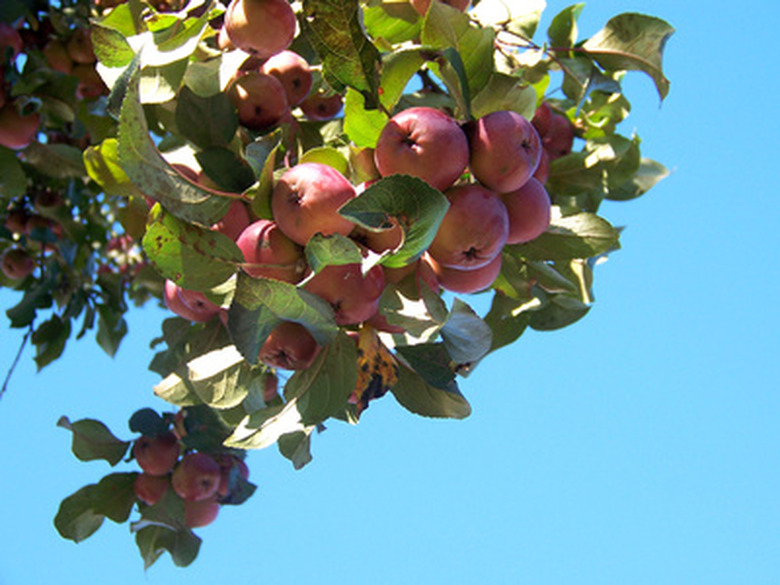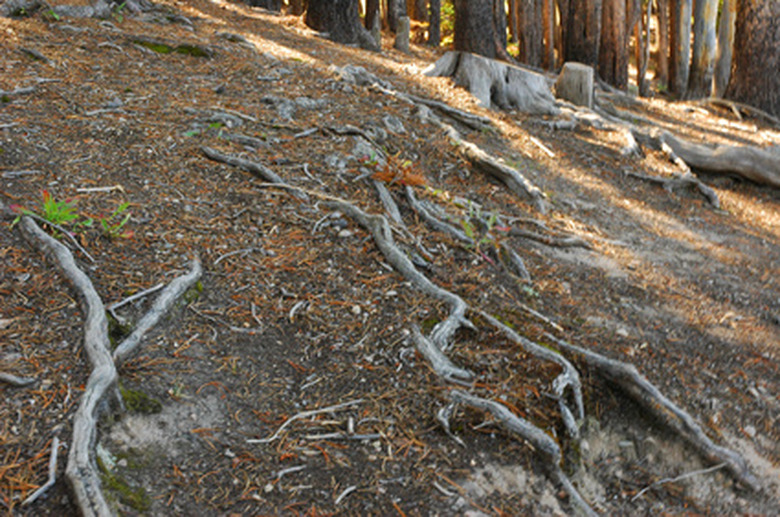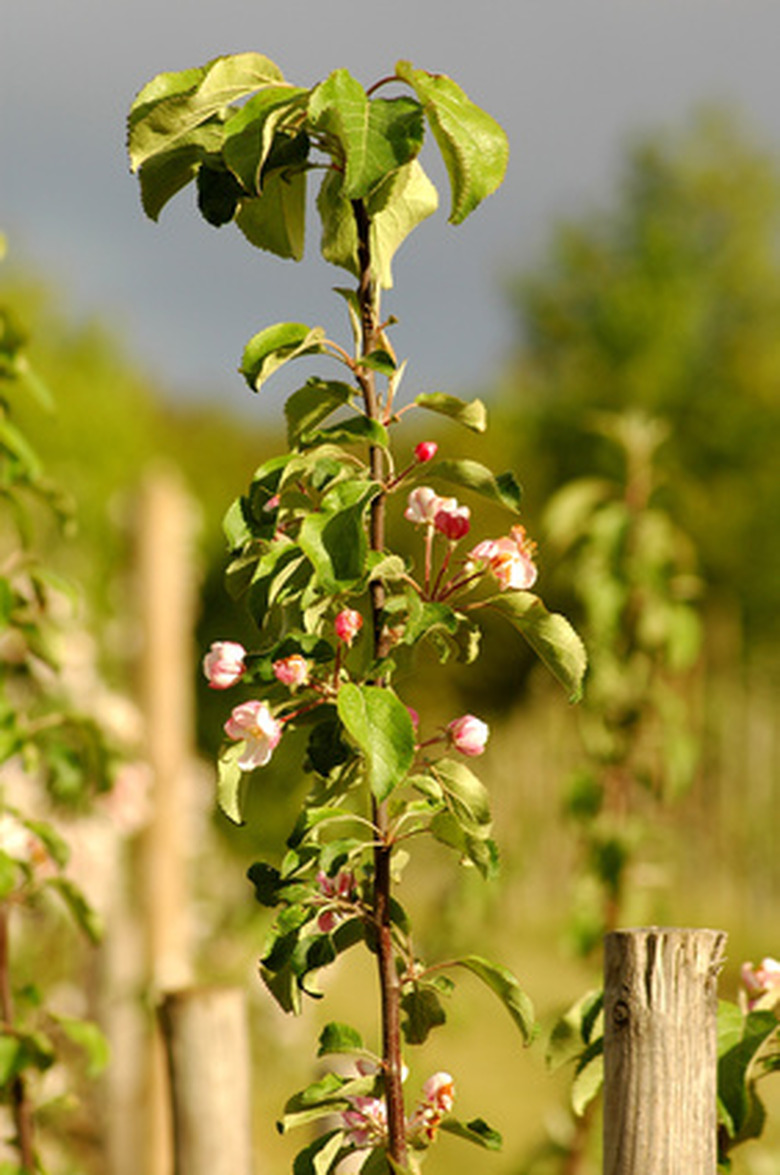What Type Of Roots Do Apple Trees Have?
Root types fall into two major categories: taproots and fibrous roots. A taproot system is composed of a large single main root that grows out of the bottom of a seed and reaches deep into the soil for moisture. Fibrous roots are intricate networks of smaller roots that penetrate the soil in all directions away from the plant in search of water and nutrients and are generally close to the surface of the soil. Apples trees use both types of roots.
Root Function
The root is the first part of the tree to emerge from the seed, as it serves to anchor the plant to the soil and and is its main nutrient conduit. Root systems of trees compete with plants nearby, often creating a complex web of roots just below the surface of the soil. Heavy rains and erosion often expose the more shallow roots that become visible a good distance from the tree that produced them.
Taproots
A good example of a plant composed of a single taproot is a carrot. This is an instance where the single root continues to lengthen, producing an edible food. In cases where the soil quality is poor, carrots produce mostly bushy green tops but very little root. An elongated taproot makes transplanting some trees and plants difficult, as it requires digging a hole that is at least as long, if not longer, than the root in order to be completely buried.
Fibrous Roots
Many plants, including apple trees, start out by sending down a taproot from which lateral, or fibrous, roots grow. The taproot stops growing, and the lateral roots branch out in all directions away from it. In some cases, the root systems reach a circumference that is more than twice that of the crown of the tree.
Apple Trees
Apple trees develop from a taproot that eventually develops lateral roots. Nursery-grown apple trees often have their taproots cut to encourage the growth of lateral roots. This makes packaging the more compact root systems more efficient and also makes transplanting more successful.
Root Dwarfing
Newer, smaller apple trees are produced by dwarfing their root systems, which limits how large the trees will get. Drawbacks to this process include creating weak root systems that will allow the smaller trees to lean under heavy loads of fruit. Dwarf or semi-dwarf apple trees also need more frequent watering, as their stunted fibrous root systems aren't capable of holding on to water like full trees.



